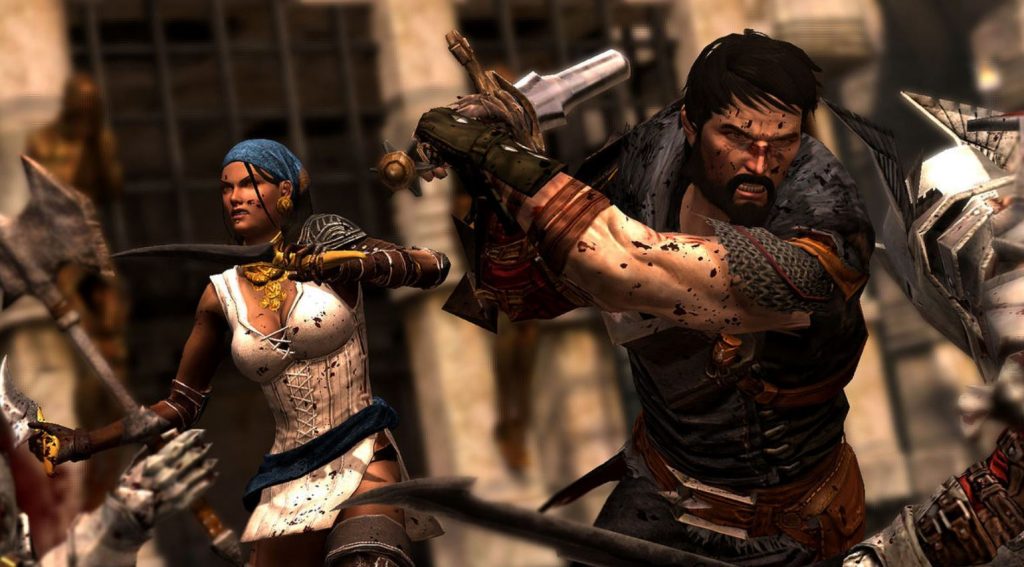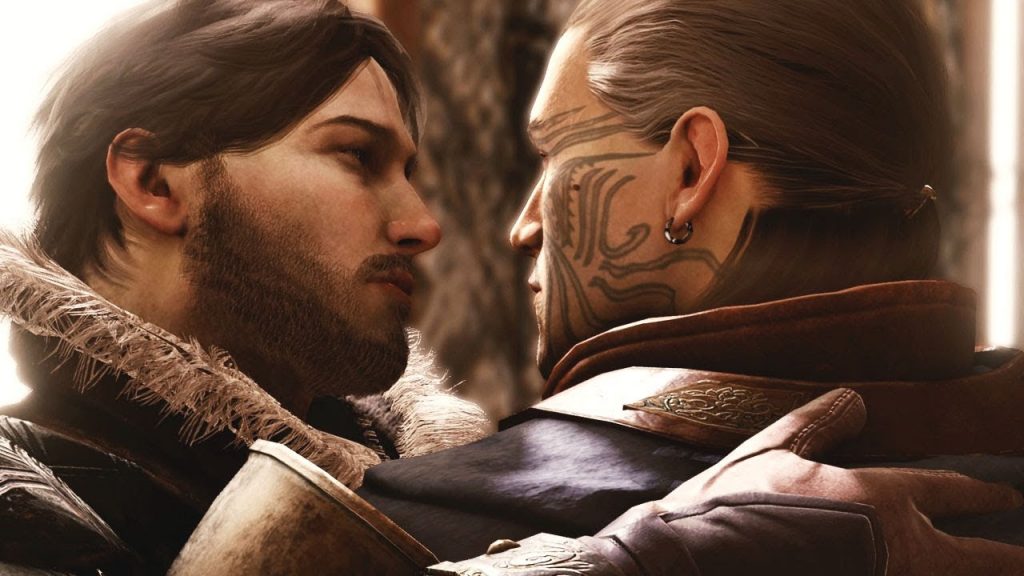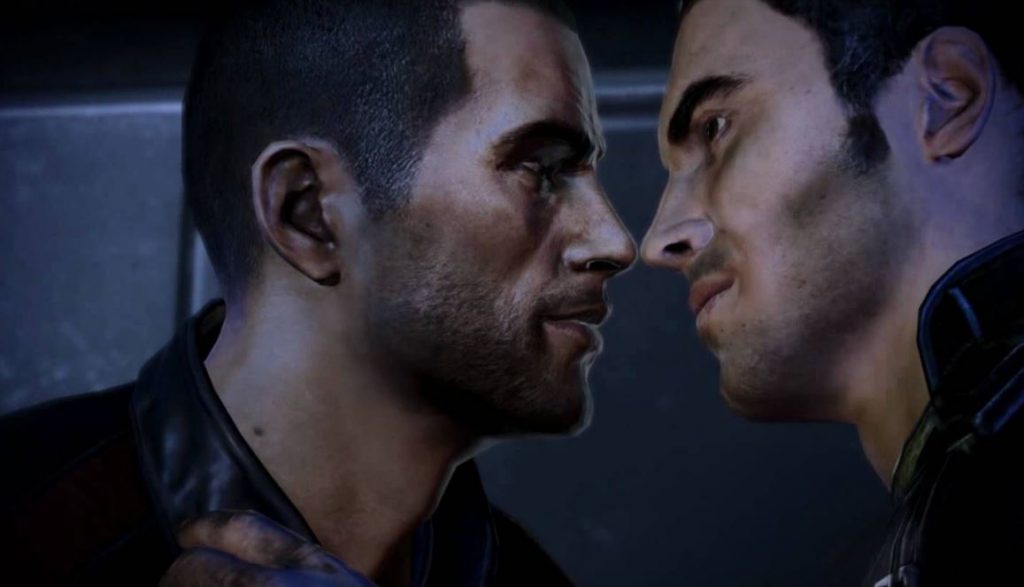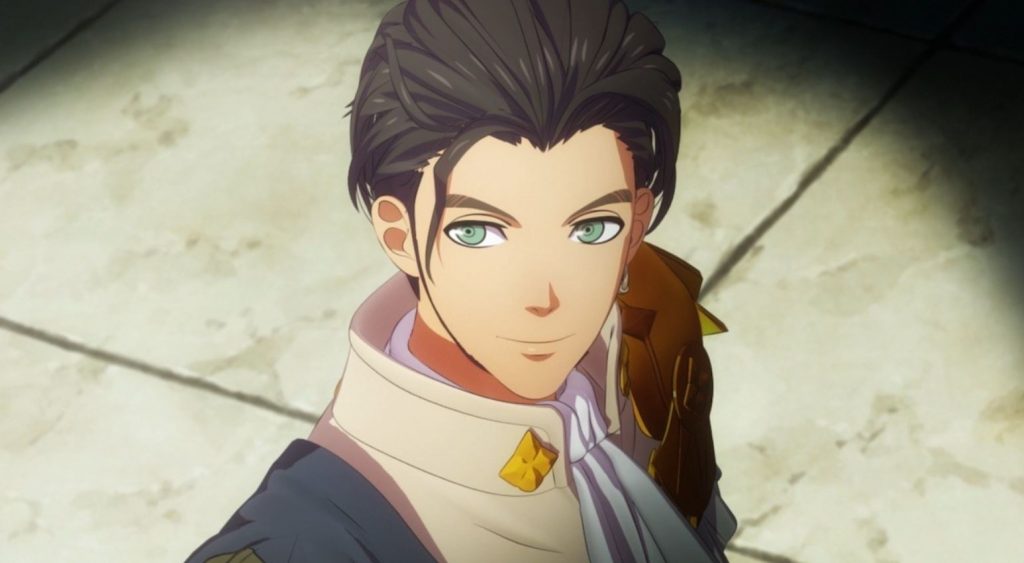
The Pros and Cons of the Sexuality Spectrum in RPGs
Romance in RPGs is a place where the wide spectrum of sexuality must adhere to the rigid code of a video game. That same code has to account for stories writers want to tell and how a character’s identity informs them.
Several developers have taken different approaches to representing characters of different orientations, all in hopes that they can account for something that will appeal to any given player. Or, in some cases, developers have actively defied that notion, only offering options that appeal to some identities while excluding others.
When it comes to representing different sexualities and giving a player a choice to express themselves, some approaches are better than others, and some should probably be dropped completely.

Greedfall was the game that brought this idea to the forefront of my mind recently. In Spiders’ action RPG, the diplomatic De Sardet has four possible romantic relationships to pursue. The noble knight Kurt, the native royal Siora, the seafaring Vasco, or the roguish scientist Aphra. Here you have two men and two women, which are all romanceable in a heterosexual relationship, but Vasco and Siora are also both open to same-sex relationships as well. The trouble is that by giving Kurt and Aphra defined straight sexualities, queer players, by design, have fewer choices than straight ones do. This same setup is present in Dragon Age: Origins, which has four romance options comprised of two men and two women, but only one of each can be pursued by someone of the same gender.
In the interest of allowing players to pursue whoever they want, Dragon Age II had four romantic interests that were available regardless of which Hawke (the main protagonist) you chose to play as. While the first interpretation would be that all four of these characters are bisexual, in most cases these characters’ attraction to men or women seems to be exclusively discussed in the context of their relationship with Hawke.
For example, Anders, a radical mage who Hawke meets in the city of Kirkwall, can mention a past romantic relationship with a man named Karl, but will only do so if the main character is also a man, which acts as a segue into discussing a potential relationship between the two. In an alternate playthrough where Hawke is a woman, Anders won’t mention any kind of relationship with Karl, maintaining the illusion of heterosexuality in a universe where Hawke and Anders can only be in a relationship labeled as such.
By Dragon Age: Inquisition, Bioware made a point to define the sexualities of its characters, and in doing so was able to incorporate queer stories into its own lore without having to make romances speak to either gender. The most notable example of this was through mage pariah Dorian Pavus, whose story involved a magical, in-universe representation of conversion therapy directly tied to his identity as a gay man. In taking this approach, Inquisition was able to represent a wide spectrum of identities, but not at the cost of player choice. While two romantic options are gated by your character’s race, the other six romantic options account for straight, gay, and bisexual options for a male or female protagonist.

While Dragon Age’s growth has been gradual, its science fiction counterpart Mass Effect has been much slower to put an emphasis on player expression and choice. The first game featured three romantic options, one male and two female, none of which were available as a gay romance for male players while one of the women was pursuable as a female. Mass Effect 2 managed to take a step back even further from this by only offering three heterosexual romance options per gender. Mass Effect 3’s approach was lopsided, showing a preference for male players pursuing women, but it did finally feature same-sex relationships for men, one of which was in the form of the series first exclusively gay character Steve Cortez.
Fast forward to five years later and Mass Effect: Andromeda took a stance similar to Dragon Age: Inquisition, using defined sexualities to not only offer choice across the spectrum, but also incorporating these identities into characters’ stories in the context of its lore. Gil Brodie, the engineer aboard the player’s ship, learns to lead a more responsible life after he begins to question his role in a repopulation initiative as a gay man. This can, in the event that the player is pursuing his relationship, result in the two planning to become fathers in the new galaxy with a surrogate.
As Bioware stumbled but eventually made its way to a point where its two pillar franchises have found ways to allow player choice and also represent orientations across the spectrum, other series are stumbling still, or in some cases outright refusing to include queer identities.

Fire Emblem Three Houses has recently come under fire for the ways it queerbaited gay players, ultimately resulting in only one possible romantic relationship between two men. Meanwhile, a male player can establish a loving relationship with any one of 15 women. A female protagonist fairs slightly better with five total lesbian relationships, but that number is still dwarfed by the 16 possible straight relationships they can end up in by the end. Then there are the modern Persona games like Persona 5, which include nine possible relationships with any of the nine female confidants while there are no gay relationships, and the game practically laughs at the notion.
In the end, representing the entire sexuality spectrum is probably more expensive than giving queer players one token option, and some argue not worth it for what they perceive to be a smaller audience than possible straight players to pander to. These arguments not only operate under the assumption that one person’s choices are more important than another’s, but they dismiss the importance of portraying these characters as more than just the mechanics they’re governed by.
It’s hard to not call RPG romance a numbers game, as defined sexualities for companions should also include straight people as well. But when the choices available and stories told always seems to favor straight characters over queer ones, it’s more apparent than ever that developers who want to offer players a chance to express themselves need to show just as much investment in that for everyone.
One queer catch-all doesn’t cut it anymore.






